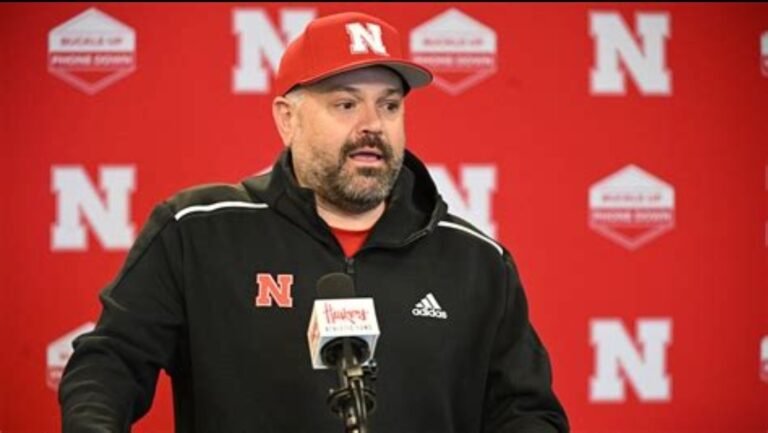In December 2024, the college football community was abuzz following the unexpected transfer of running back Dante Dowdell from the University of Nebraska to the University of Kentucky.
This move prompted Nebraska’s head coach, Matt Rhule, to express concerns about potential tampering influencing Dowdell’s decision.
The Transfer Timeline
Dante Dowdell, a highly regarded running back from Picayune, Mississippi, initially committed to Nebraska, bringing high expectations for his performance. However, on December 16, 2024, Dowdell entered the transfer portal, and by December 20, he had committed to the Kentucky Wildcats. The swift nature of this transition raised eyebrows within the Nebraska program.
Coach Rhule’s Concerns
In the aftermath of Dowdell’s departure, Coach Matt Rhule addressed the media, hinting at possible tampering—a violation where external parties influence a player to transfer before they officially enter the portal. Rhule stated, “I love Dante, and Dante loved it here. I’ve nothing but great things to say about Dante.” He further suggested that Dowdell’s quick commitment indicated prior contact, noting, “There’s nothing sudden about any of this.”
The Broader Issue of Tampering
Tampering has become a contentious topic in collegiate athletics, especially with the advent of the transfer portal and Name, Image, and Likeness (NIL) agreements. These changes, while empowering student-athletes with greater mobility and earning potential, have also led to concerns about unethical recruitment practices. Coach Rhule’s comments shed light on the challenges programs face in retaining talent amidst potential external influences.
Reactions from the College Football Community
The allegations of tampering sparked discussions across the college football landscape. While some analysts empathized with Rhule’s concerns, others pointed out the complexities introduced by the current transfer and NIL regulations. The University of Kentucky did not release an official statement regarding the allegations, and Dowdell himself remained silent on the specifics of his decision-making process.
Implications for Nebraska and Kentucky
For Nebraska, losing a player of Dowdell’s caliber was a significant blow, especially given the high expectations surrounding his recruitment. The incident prompted the Cornhuskers’ coaching staff to re-evaluate their player retention strategies and address potential vulnerabilities to tampering.
Conversely, Kentucky celebrated the acquisition, viewing Dowdell as a valuable addition to their roster. The Wildcats’ coaching staff highlighted the program’s positive environment and opportunities as key factors attracting transfers, though they refrained from commenting directly on the tampering allegations.
Looking Ahead
This incident underscores the need for clearer guidelines and stricter enforcement mechanisms to address tampering in collegiate sports. As the NCAA continues to adapt to the evolving landscape of player mobility and NIL agreements, ensuring fair play and protecting the interests of student-athletes and programs alike remain paramount.
In conclusion, Dante Dowdell’s transfer from Nebraska to Kentucky has ignited a critical conversation about tampering and ethics in college football recruitment. Coach Matt Rhule’s candid remarks have brought attention to the challenges programs face in this new era, emphasizing the importance of integrity and transparency in collegiate athletics.



